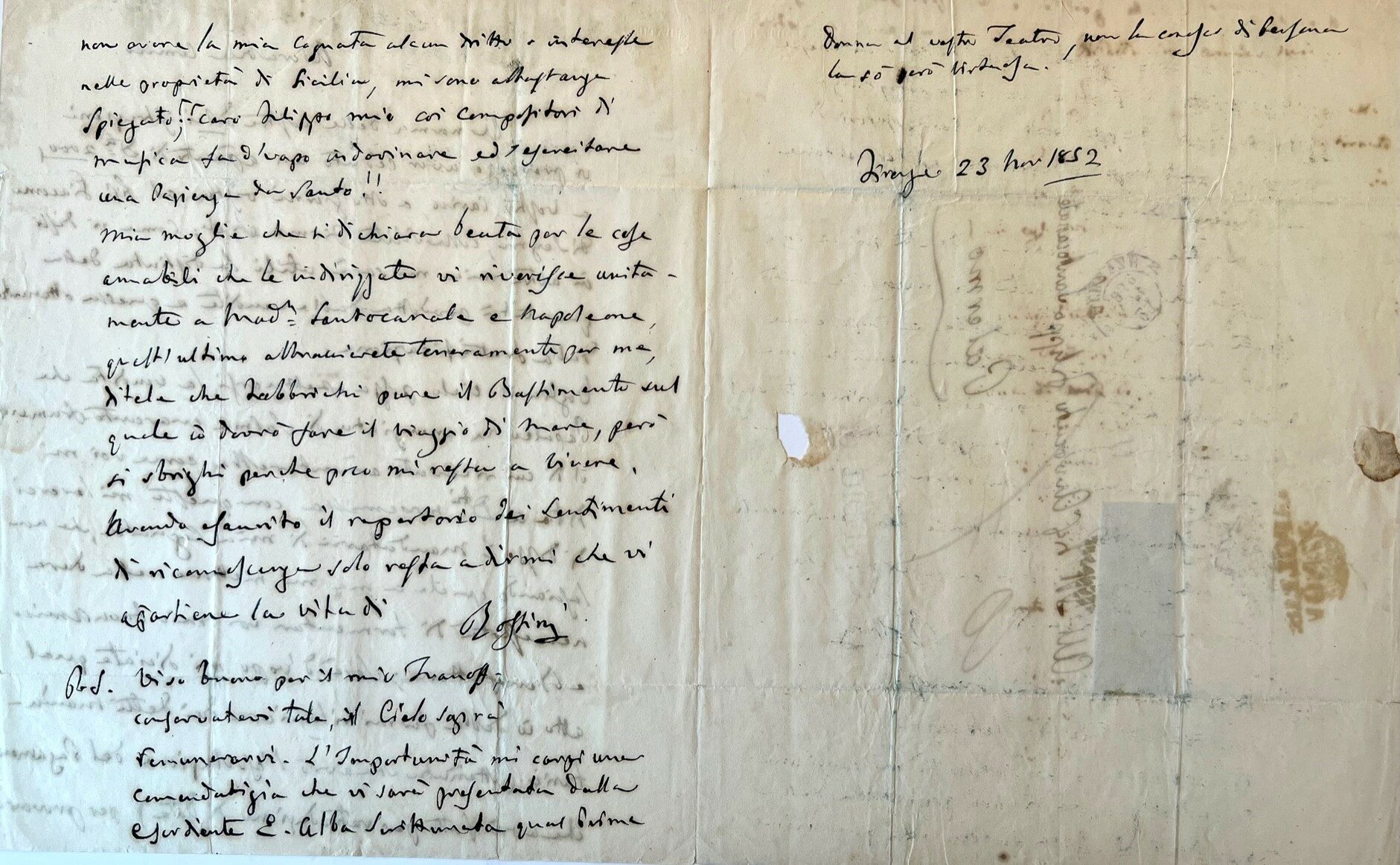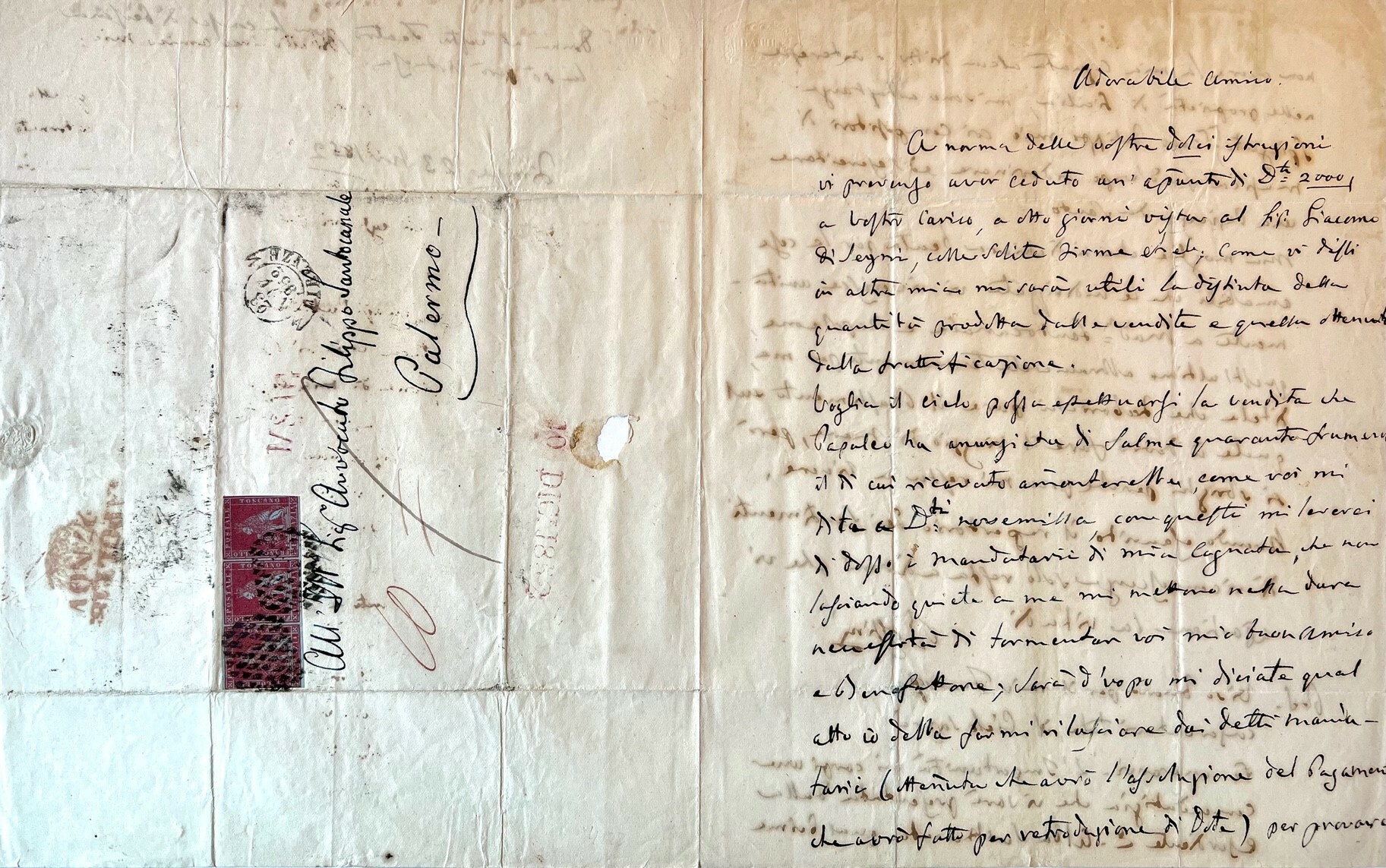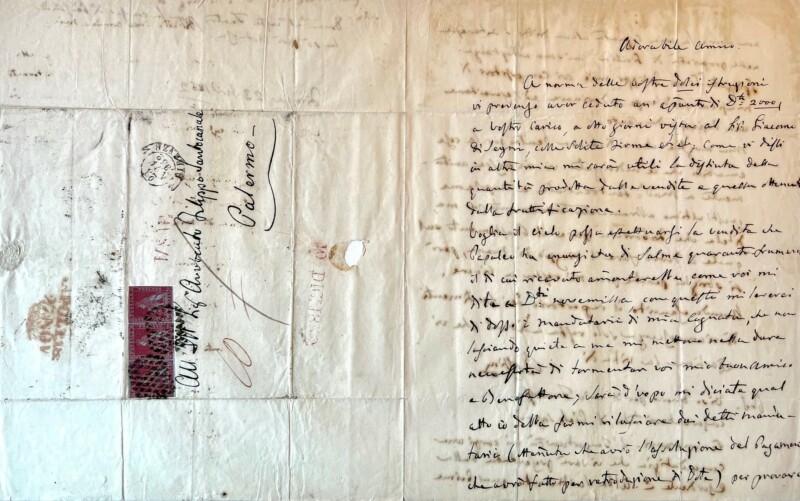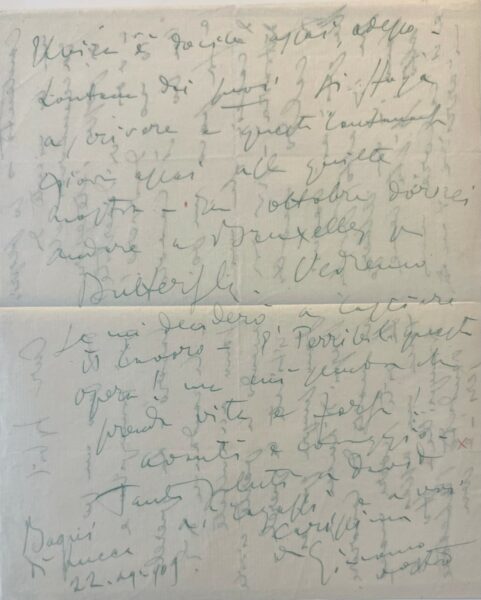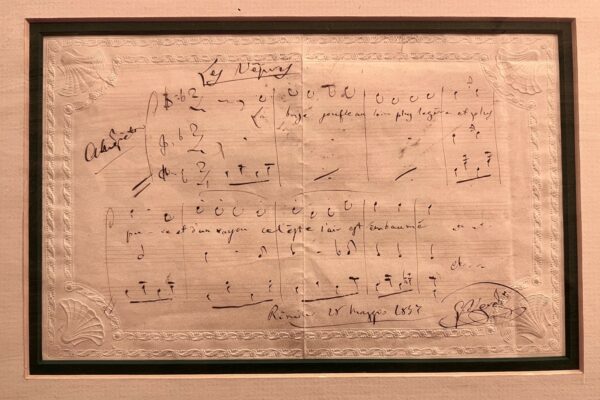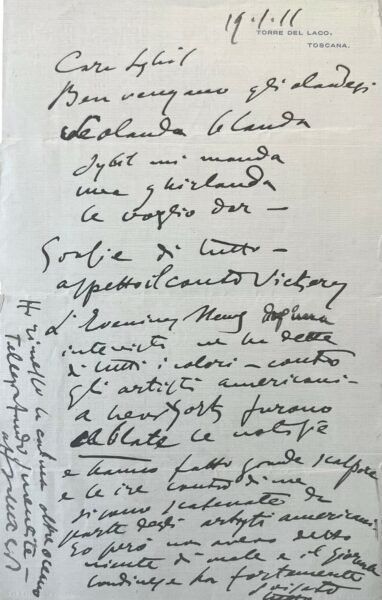As I told you in my other letters, it will be useful for me to have a note of the quantity produced by the sales and the one obtained from fruiting.
I would really like to be able to conduct the sale that Papaleo has announced of forty salma [a unit of dry capacity used to measure grain prior to adoption of the metric system] of wheat, the revenue from which would amount, as you tell me, to nine thousand ducats. With this I would get rid of my sister-in-law’s agents who give me no peace and who put me in the harsh position of bothering you, my good friend and mentor; you should tell me what document I must get from the above mentioned agents (after I have obtained the receipt for the payment made with an earlier date) to prove that my sister-in-law has no right to the property in Sicily; have I made myself quite clear??
My dear Filippo with composers it is necessary to guess and exercise the patience of a saint!! My wife, who is very pleased for the lovely thoughts you address to her, pays her respects to you and to Miss Santocanale and Napoleon. Embrace the latter dearly for me and tell him to build the boat in which I will have to make the sea voyage, but hurry up because I have little time left to live; as I have finished the repertoire of feelings of gratitude, I now tell you that belongs to you the life of
Rossini
P.S. Good wine for my Ivanoff. Keep yourself as such. Heaven will reward you. I was suggested an actor who will be introduced to you by the debutant E. Alba cast as the primadonna of your Theater.
I do not know her personally, but I know her to be virtuous.”
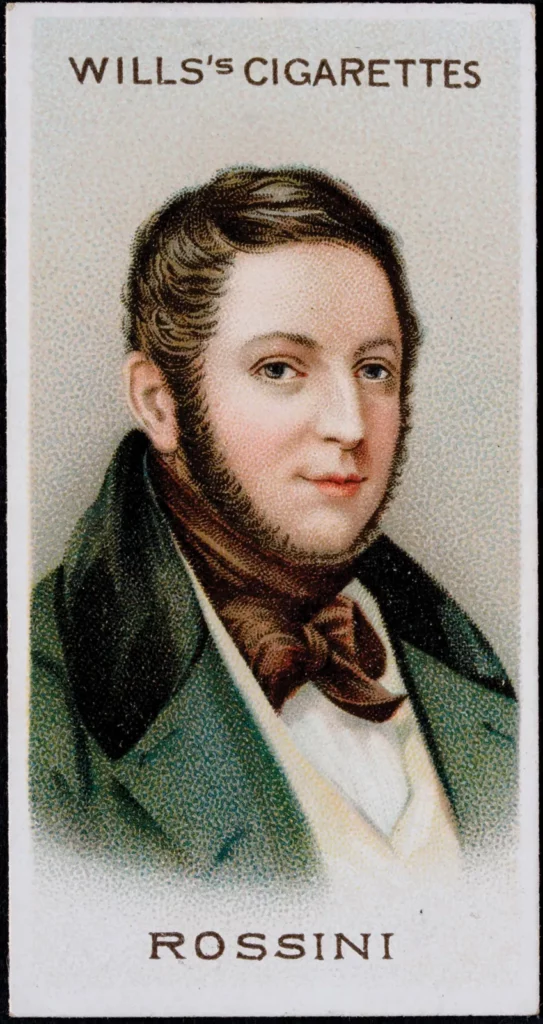
Gioachino Rossini
Although Rossini began his musical career with the hopes of becoming a singer, after his voice broke, he became an accompanist and composer. He soon threw himself into the fashionable opera genre, opera buffa, or “comic opera.” But Rossini was not content with merely replicating the existing mode; rather, he turned to embellishing his melodies, enlivening the ensembles and finales, and putting the singers at the service of the music. Arriving in Paris in 1823, Rossini was fawned upon by all who received him. There, he wrote Guillaume Tell in 1829, which won rave reviews from Parisian audiences and critics alike. From that point on, the 37-year-old Rossini resolved never to write again for the theater. Although the reasons for his musical silence remain purely conjectural, some point to the composer’s innate indolence; others, to his jealousy over the Parisian success of fellow opera composer Giacomo Meyerbeer. Rossini spent his final years composing “for himself and for his circle, while expounding to those who would listen his attitudes towards art and stories of his youth,” (The New Grove Dictionary).
After his 1829 retirement, he resided in Bologna recalling “this period in extremely morbid terms, claiming that his life and that of his wife had been in danger, and speaking of the Bolognese as assassins,” (ibid.). Those in favor of Italian unity in Bologna were hostile toward Rossini for his political beliefs and these incidents “together with his physical ills, further demoralized him,” (ibid.). Rossini fled to Florence where he lived for several years and whence he wrote our letter, which also refers to his mortality even though he would live for another 16 years. Our letter is likely related to the estate of his late wife, Isabella Colbran, a Spanish soprano whose inherited villa and land in Sicily Rossini took control of upon their marriage in 1822. The couple grew apart and after his wife’s death in 1845, Rossini married French courtesan Olympe Pélissier (1799-1878), whose former lovers included Honoré de Balzac and Vincenzo Bellini.
Santocanale was an attorney from Palermo and a close friend of both Rossini and Bellini. A supporter of Italian unification, he also served as a parliamentarian in both the Sicilian and national governments.
In the postscript, Rossini mentions his friend and protégé, Russian tenor Nicola (Nikolai) Ivanoff (1810-1880), who originated the role of Arnoldo in Guillaume Tell and performed in numerous other Rossini works as well as those of Giuseppe Verdi, Donizetti and Bellini. In fact, “One of the principal ways Rossini favored his protégé was by inviting composers to prepare new music for Ivanoff to insert into revivals of their operas,” including Verdi and Saverio Mercadante, (“Giuseppe Verdi’s Attila,” Library of Congress, Gossett https://www.loc.gov/collections/moldenhauer-archives/articles-and-essays/guide-to-archives/giuseppi-verdi/).
Written on a folded sheet with the address leaf intact. Minor show-through from the ink; the address leaf has several postage stamps and ink cancellations. In fine condition.

